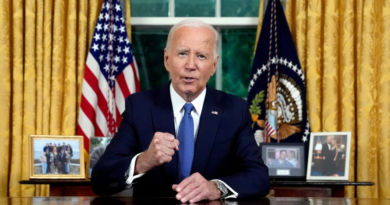TikTok floods Congress with complaints over a potential ban—making politicians’ point for them
TikTok’s fate in the U.S. could hinge on a new bill moving through Congress, but the company’s massive campaign urging users to oppose it with their representatives may wind up doing more harm than good.
On Thursday, TikTok flooded its users’ phones with a push notification and a message to “Stop a TikTok shutdown,” with a link that allowed users to quickly call their representatives from within the app. The campaign led to hundreds if not thousands of calls to lawmakers, according to multiple outlets, but it also highlighted TikTok’s massive influence: exactly what some elected officials see as the key danger in a foreign-controlled company shaping the opinions of such a large group of Americans.
One of the co-sponsors of the bill, Rep. Raja Krishnamoorthi (D-Ill.), told CBS News that TikTok’s campaign targeted minors who didn’t know what a congressman was. While TikTok’s initiative was meant to convince lawmakers to oppose the bill, Krishnamoorthi said it actually demonstrated why so many members of Congress voted to advance it.
“They don’t want a foreign adversary-controlled social media app using geolocation to target minor children to call members of Congress or interfere in our elections,” he said.
The U.S. government hasn’t definitively proven that China is accessing TikTok user data and the company has said it would not hand over data to the Chinese government. A spokesperson for TikTok declined to comment.
The TikTok bill, dubbed the Protecting Americans from Foreign Adversary Controlled Applications Act, would give TikTok five months to cut ties with its Chinese parent company ByteDance, or face a ban from app marketplaces in the U.S. Marketplaces that violate the law would face a fine of $5,000 per user of the app, which could put violating companies on the hook for billions of dollars, thanks to TikTok’s massive user base.
Despite being introduced just earlier this week, the House Energy and Commerce Committee has already voted unanimously to advance the bill. Key lawmakers have also said they would support the bill, including Speaker of the House Rep. Mike Johnson (R-La.), and on Friday afternoon President Biden said he would sign the legislation if it made it to his desk. Still, in the Senate, some lawmakers like Sen. Rand Paul (R-Ky.) remain opposed to the bill.
Supporting lawmakers maintain that the bill isn’t a ban but rather a choice because it gives the company a chance to separate from its Chinese parent company. Yet, TikTok has painted the legislation as an attack on the free expression of its 170 million American users.
“This legislation has a predetermined outcome: a total ban of TikTok in the United States,” the company said in a statement.
In the past, Other tech companies have used their influence to help sway users’ opinions on laws that affect them. When in 2015 New York City was considering a law that would cap the number of ride-hail drivers in the city, Uber built a fake wait time meter into their app that showed how much longer finding a driver would take were the law to pass, and urged users to send an email opposing it to then-mayor Bill DeBlasio and the city council.
The bill that could ban TikTok still has to pass the full House and then move through the Senate before having a shot at becoming law.




